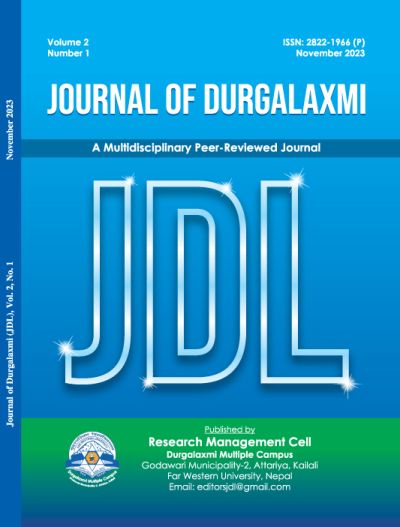Legitimation of Linguistic Hegemony Through Language in Education Policy in Nepal: A Critical Discourse Analysis
DOI:
https://doi.org/10.3126/jdl.v2i1.65401Keywords:
ideology, power, double-voicedness, language in education policy, hegemonyAbstract
The constitutional provision of equal right to all languages as a medium of instruction claims that linguistic justice over all the languages has been maintained in Nepalese Education system. However, this 'positive self-representation' of the constitution and the government seem to implicitly marginalize the 'other languages' through legitimation of domination of powerful languages such as, English and Nepali. Based on this issue, this paper critically analyzes the discourse of Language in Education Policy (a part of National Education Policy 2019) in order to examine how hegemony of dominant languages such as, English and Nepali over other minority languages is legitimized through language in Education Policy in the context of Nepal. Critically analyzing the discourse of language in education policy of Nepal through the lens of ideology, power and double voicedness, the paper reveals that even though Nepalese language in education policy seems to adopt mother tongue-based multilingual education policy, hegemony of two dominant languages (English and Nepali) is still prevalent. The hegemony of these dominant languages is legitimized, reinforced and maintained by the nation through language in education policies.
Downloads
Downloads
Published
How to Cite
Issue
Section
License
Copyright (c) 2023 The Author(s)

This work is licensed under a Creative Commons Attribution-NonCommercial 4.0 International License.
CC BY-NC: This license allows reusers to distribute, remix, adapt, and build upon the material in any medium or format for noncommercial purposes only, and only so long as attribution is given to the creator.




